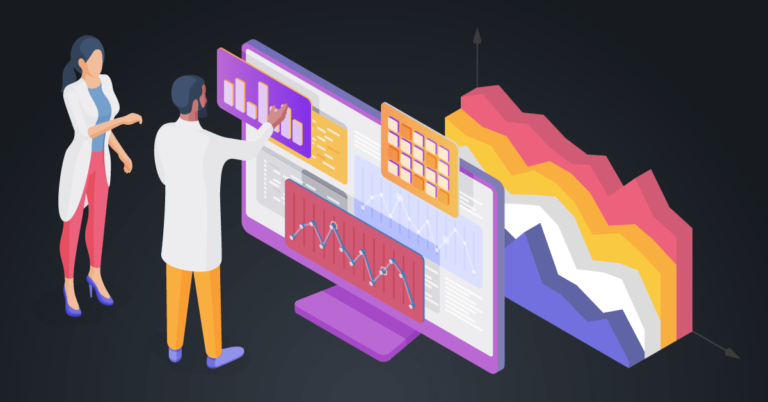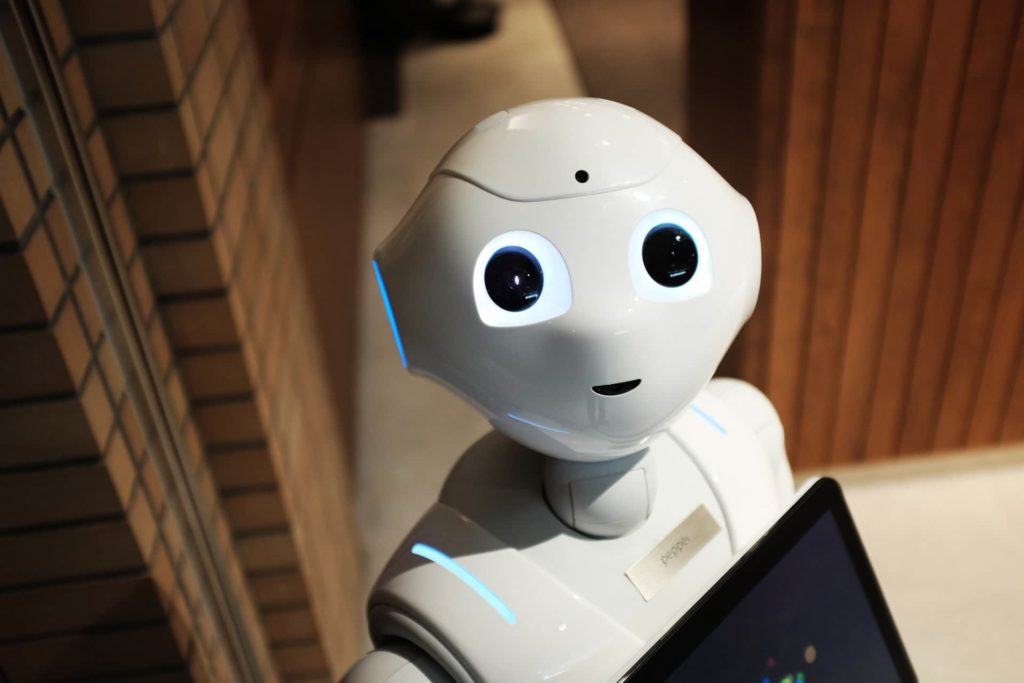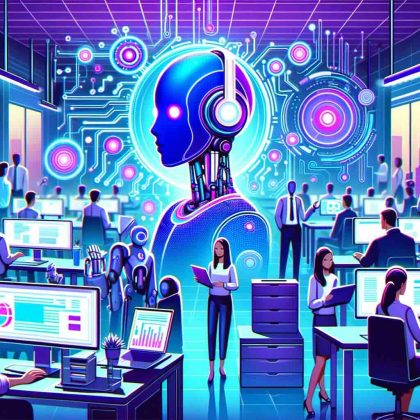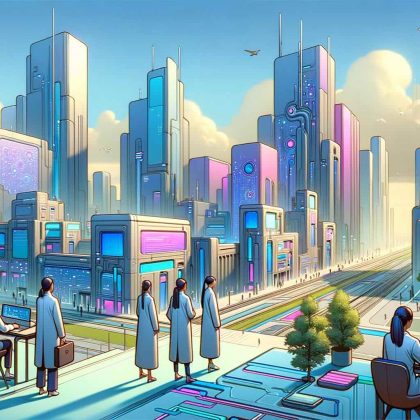Future Technology Predictions Every Data Scientist Should Be Aware Of

Given that businesses must use data to improve services, increase productivity, and increase sales, Data Science will become interwoven in everything we do in the future. The essential word here is ‘future’ and, by extension, ‘ future technology.’ Data Scientists use Big Data to forecast all eventual outcomes that could affect an industry. This is true because data science has touched nearly every area, from healthcare, where models can anticipate patient outcomes and side effects, traffic, where algorithms can help predict peak times, and when it is best to travel on weekends.
Of course, no algorithm or model is flawless, and you can never really forecast a person’s behavior without making adjustments for reality. However, Data Science can still offer suggestions based on real-world data to assist in anticipating specific events in their best form. This constant evolution of data and the data science field has kept it at its peak in terms of trending career choices. For this reason, data scientists must constantly think about the future, continually wondering about the next tech that will change the world. The future is a broad and infinite series of possibilities, one that we can only scratch the surface of. That being said, it will make it much easier to draw a restriction line to what we consider possible future tech predictions. So, it will be safe to ask questions like ‘what will tech be like in 2030?’ or possibly even a bit farther than that in the case of ‘what will tech be like in 2050?’
POSSIBLE TECHNOLOGY FORECASTS
The exponential expansion in data that we’ve seen since the dawn of the digital era isn’t expected to decrease anytime soon. We have most likely only seen the tip of the iceberg. In the following years, there will be an ever-increasing avalanche of data. Technology future predictions have shown that our data science models will benefit from the new data, resulting in more robust models and new and unique use cases. With the constant innovation in the technological field, some technology predictions will either make or break the future of data science as we know it.
It is widely assumed that thanks to enhanced tools, future Data Science projects would rise to unprecedented heights, requiring more human professionals to manage very complicated jobs efficiently. According to McKinsey Global Institute (MGI), there will be a severe shortage of roughly 250,000 Data Scientists in the United States alone over the next decade. Although automated tools and assistants can help the human mind do tasks more quickly and accurately, technology will never replace human thought. Intellectual thinking is at the heart of problem-solving, and no computer, no matter how advanced, can imitate it.
Predictions about the future of technology
If you were born in a slightly older generation, the ’60s or ’70s, for instance, you’ve been a living witness of what you must have considered futuristic technology at the time has completely altered the world as you knew it. From the dawn of social media to improved data collection and analysis, everything is different. So, it will not be strange to think, ‘what will technology be like in 50 years?’ Here are a few technology forecasts that might make an appearance in the future;
- The certainty of widespread ML Automation: Many arduous human jobs will be routinely performed by tools or bots, which current generations of Data Scientists cannot avoid. That is fantastic news for Data Scientists because human minds will be free to pursue sophisticated problem-solving concerns. While automated solutions may help bridge the supply-demand gap in the field of Data Science, it is advised that academia must keep up with the pace of technology providers to continue producing qualified DS practitioners in the future.
- Space Tourism, A new frontier: Space tourism, according to Business Insider, could be achievable by 2050, but only for the very affluent. Companies like Jeff Bezos’ Blue Origin and Elon Musk’s SpaceX will push the boundaries of space travel to the point where tourism will be possible by 2050. If that is already a probability in 2050, which is only 30 years in the future, what next for 50 years and much more beyond? So, if you’re curious and ask questions like what inventions will there be in 2050? Then you can think about the endless possibilities of space technology.
- Driving will be safer with self-driving cars: For years, we’ve heard talks about self-driving cars; recently, companies like Tesla have even made them a reality. But as of right now, they are still only prototyped with a larger body of possibilities lying ahead for them. Despite the high-profile mishaps involving self-driving cars in recent years, this branch of AI has the potential to cut deaths and injuries on our roadways drastically. According to a Stanford University analysis, self-driving cars would not only cut traffic-related fatalities and injuries but may also revolutionize our lifestyles. We will have more personal time. Self-driving cars and shared transportation may also influence where individuals choose to live due to enhanced comfort and reduced cognitive strain.
- Change in energy source: A swift global move toward clean energy, algal biofuel, and other renewable sources – helped by stunning nanotechnology breakthroughs. Progress in nuclear fusion will be made, albeit broad implementation would have to wait until later decades.
- Drone solution for locating previously unknown locations: Some zones in underground mines are inaccessible. However, companies have begun to develop drones that can fly, drive, and climb and employ laser technology to scan zones and construct a 3D map of them. With the advancement of airborne robotics technology, we will extend human reach to areas where man-made infrastructure does not exist. Now you can ask yourself, what will be the next big thing in 5 years? It could be drone tech; it could be anything. It’s all a grand pool of possibilities.
- Ocean Thermal Energy has the potential to lead us to a 100 percent sustainable energy future: One of the world’s major renewable energy sources, ocean thermal energy, is mostly untapped. For example, Bluerise is currently working to achieve an energy breakthrough by converting ocean thermal energy into utility-scale electricity. It will be able to compete with fossil-fuel-based generation and other renewables that require grid balancing and storage. Being one of the few consistent energy sources available days and nights year-round will play a critical part in the future energy mix.

DATA SCIENTISTS’ PREPARATION FOR THE FUTURE
- The capacity of data scientists to explain how their models function will become more crucial. Data scientists have a responsibility to assist people in understanding how technology works to make use of all of its benefits. Data scientists must be competent to code, but they must also articulate and explain their findings. If you can’t explain what you did, it doesn’t matter how skilled you are at coding.
- Data scientists will need to work hard every day to learn new abilities and be adaptable in their approach to their profession. Successful data scientists require advanced technical skills, which change regularly as the industry evolves. Smartness, adaptability, and a sense of love for what you’re doing are the most vital qualities for data scientists. Data scientists who refuse to try new things will fall behind those willing to take on the challenge of trying something new.
PROBLEMS DATA SCIENTISTS MIGHT FACE IN A FUTURE TIMELINE
With the dawn of futuristic computer technology, there is no doubt that problems might arise for an average data scientist. In our quest to seek out future technology predictions, we must also acknowledge that there are problems that need to be sorted out and overcome for seamless operations to be carried out, even in the future.
Finding the Right Data and Sizing the Data
One of the main issues with the vast volume and velocity of data is making sense of it all to make lucrative business decisions. Too much data can cause data paralysis by diverting attention away from actionability. To create a robust analytical model, it is critical to acquire data and remove noise. Model correctness necessitates data cleansing. Collecting, storing, and integrating data sources takes a lot of time, effort, and money without first identifying how and by whom the data will be utilized.
Choosing the Right Analytics Use Cases
Many analytics leaders argue that there aren’t many use cases out there because the analytics field is still emerging. Finding the correct data for the correct analytics use case can be difficult. There’s a danger that insights won’t be right if a suitable set of information isn’t discovered for a particular use case. It may be challenging for them to perform many things independently, such as reviewing the content and persuading others to embrace it, especially if this is their first time doing so in an organization. Making its presence felt in the boardroom by establishing itself as the driving force behind big management decisions is difficult.
Information Consolidation
Every industry has an abundance of data that is generally dispersed. Consolidation of information remains one of the most challenging issues in such settings, as most organizations struggle to leverage internal data systems. To reap optimum benefits, the sector is struggling to collect data from a single viewpoint. Therefore, it’s critical to have a consistent data view while also supplementing it with data elements filled with analytics.
Data Protection
Cyberattacks are becoming more widespread as firms migrate to cloud data management. This has resulted in two key issues:
- First, confidential information is at risk.
- As a result of recurrent cyberattacks, regulatory norms have grown, lengthening the data consent and utilization processes, further aggravating the data scientists’ displeasure.
To protect their data, businesses should use powerful machine learning-enabled security platforms and implement additional security measures. Simultaneously, they must maintain rigorous adherence to data protection regulations to prevent time-consuming audits and costly fines.
WRAPPING UP!
Future technology predictions are indeed necessary, not as a certainty but as a sort of guide to prepare for the possibility of what may or may not happen. The future isn’t some imaginary force, it is a series of possibilities made a reality by the actions of the present, so when we ask what technology will rule the future, it’s not because we know or can guess what it will be. It simply serves as a push in our efforts towards accomplishing what we have envisaged.
If you’re interested in expanding your know-how and knowledge about a possible technology prediction, do not forget to subscribe to our newsletter. Share far and wide as well; who knows, the next futuristic computer technology might come from one of you readers!




